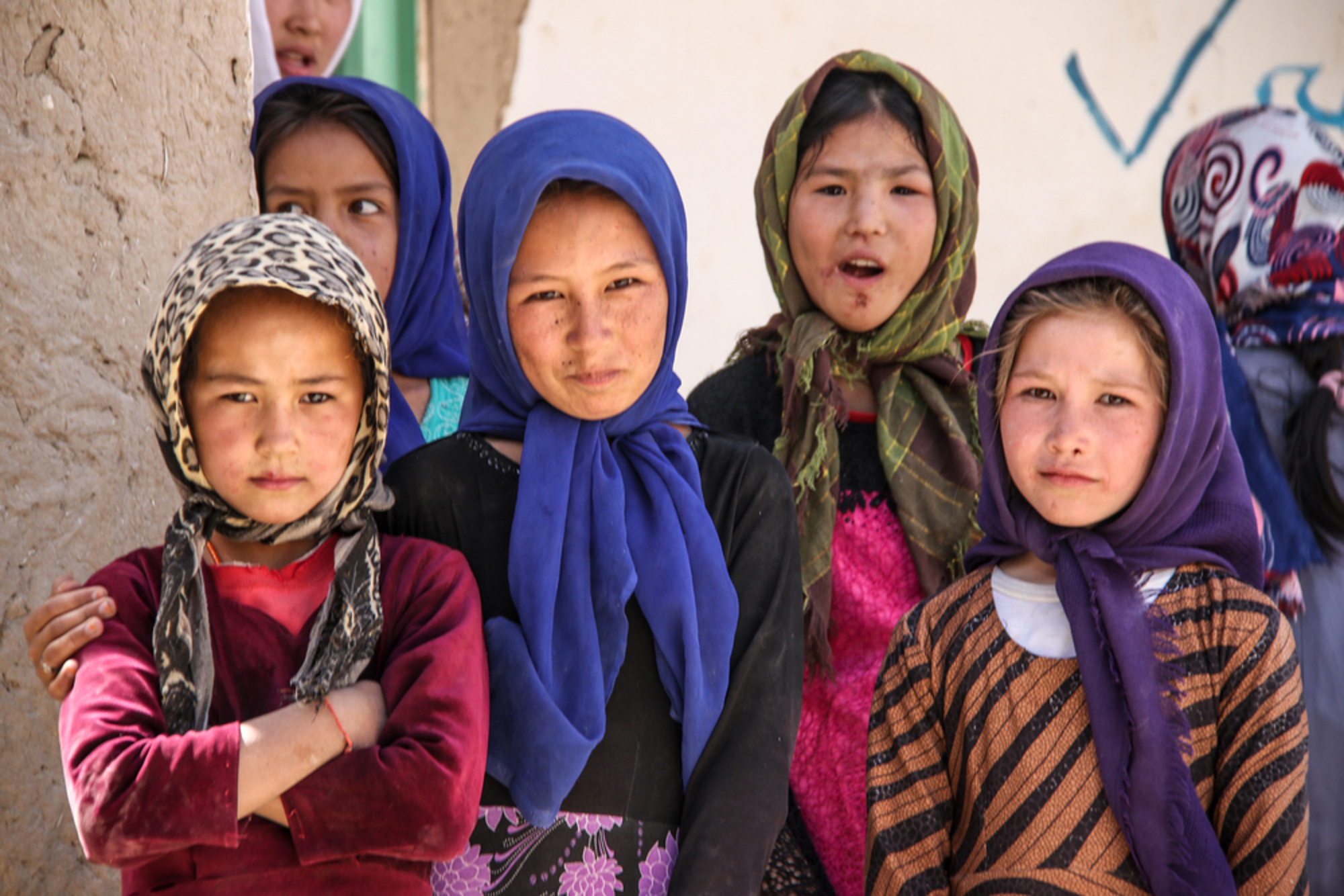Partnering for impact
Global changemaker and serial entrepreneur Shainoor Khoja shares her tips for effective social investing
Wednesday, 03 August 2022

Global changemaker and serial entrepreneur Shainoor Khoja shares her tips for effective social investing
Wednesday, 03 August 2022

 Shainoor Khoja is a global changemaker and serial entrepreneur. For close to a decade, she was managing director for Roshan Community the CSR Program at Roshan, Afghanistan’s leading telecom operator founded by the Aga Khan Fund for Economic Development, where she established this award-winning CSR programme incubating initiatives such as telemedicine, e-learning, mobile money, and real-time agricultural commodity prices for financial inclusion. She has also been a Gulf regional advisor for US NGO Mercy Corps, a project co-ordinator for Aga Khan Foundation in Syria, Gulf Representative for the Global Partnership for Education where she was responsible for bringing in the UAE as the first Arab Partner to the partnership with a contribution of $100M, and chief impact officer and managing director for Healthcare at Foundation Holdings, a Dubai-base strategic investment firm. In 2018, Shainoor founded Thriving ai, a digital platform keeping seniors connected and engaged with their families and caregivers.
Shainoor Khoja is a global changemaker and serial entrepreneur. For close to a decade, she was managing director for Roshan Community the CSR Program at Roshan, Afghanistan’s leading telecom operator founded by the Aga Khan Fund for Economic Development, where she established this award-winning CSR programme incubating initiatives such as telemedicine, e-learning, mobile money, and real-time agricultural commodity prices for financial inclusion. She has also been a Gulf regional advisor for US NGO Mercy Corps, a project co-ordinator for Aga Khan Foundation in Syria, Gulf Representative for the Global Partnership for Education where she was responsible for bringing in the UAE as the first Arab Partner to the partnership with a contribution of $100M, and chief impact officer and managing director for Healthcare at Foundation Holdings, a Dubai-base strategic investment firm. In 2018, Shainoor founded Thriving ai, a digital platform keeping seniors connected and engaged with their families and caregivers.
In the past, businesses were able to grow focusing solely on macroeconomics. But in recent years, that has all changed. Companies cannot now afford to ignore the political, social, and environmental realities of the world around us. We really need a kind of transformational vision to come to fruition if we are going to reach the development goals by 2030. And I mean all the goals, not just energy and sustainability, but also good health, education, equality, diversity, inclusion, etc.
None of these can be solved singularly by a government, or by groups from one sector. I think we really are entering into the age of the multi-sector solution, and I think that's where businesses and NGOs are going, and to some extend leading politicians and policy makers. The impact of getting everybody on the same page would be phenomenal.
I am a Muslim, and to me the Koran is very clear that the accumulation of wealth for its own sake is a sin. If you are blessed with wealth, you should make sure that your family is well catered for, but beyond that, you should use your wealth responsibly, and it is incumbent upon all of us who can to give back.
There is a lot of faith giving in the region and this is commendable. But I would love to see more discipline and for donors to really look at what people need and to invest in their future, rather than simply giving handouts.
Social investing is about giving hope to people that have no hope, but it is also about making them part of the solution, not just creating dependency. There is no point giving into a deep black hole where people are constantly dependent. You need to bring beneficiaries into the solution so that they can support themselves.
Business concepts can play an important role here and help people to give back intelligently, while also looking at impact and sustainability. For example, how you can use technology, how do you scale a solution, and how do you establish proper governance? Having good business acumen is as important as wealth when you’re looking to deliver lasting social impact.
There is Kahlil Gibrain quote that I use a lot: “You give but little when you give of your possessions. It is when you give of yourself that you truly give.” There is a lot in that. You can give money to good causes, which is not difficult to do, but ultimately, it is when you give your intellect that you make a real difference.
I believe the region’s private sector needs to be looking more carefully at how it can invest and generate sustainable programmes that are relevant to its core businesses.
"There is no point giving into a deep black hole where people are constantly dependent. You need to bring beneficiaries into the solution so that they can support themselves."

Telemedicine has the ability to reach otherwise disconnected communities with vital healthcare. Photo: Shutterstock
Between 2004 and 2012, I was the managing director for community at Afghanistan’s leading mobile operator, Roshan, where I spearheaded a number of CSR programmes across health, education, commerce, and financial inclusion.
One such programme was to create a telemedicine system helping talent-strapped hospitals in Afghanistan train doctors and nurses and access overseas medical expertise. As Roshan, we put up an initial a three-year grant that paid for the equipment and for the connectivity but after that, they were on their own. That was 14 years ago. They are still going strong and it showed a new way of working for CSR in unstable but high-need environments like Afghanistan.
Good partnerships are when every partner and every stakeholder brings their own expertise to the table. Nobody is stronger or weaker. Each needs the other. And when you get that right, this is where I think the magic comes together.
The telemedicine initiative in Afghanistan involved government relations, healthcare professionals, different products & partners such as Cisco, Netlink Technologies and AKUH, the Roshan technology department, the procurement department all working in partnership.
Of course, this kind of partnership is never easy; it requires a lot of trust building and time, and the CSR department cannot do this alone, they need backing from C-suite. It is essential this commitment is visible from the very top and that as it cascades down, it pulls people and inputs in along the way.
I really believe that the time has come to make more of these impact partnerships happen. I think both the private sector and civic and not-for-profit organisations are at a place where they understand this. Some of them are already doing it exceptionally well. Some are experimenting, but there definitely a very visible willingness to move in this direction.
“Good partnerships are when every partner and every stakeholder brings their own expertise to the table. Nobody is stronger or weaker. Each needs the other."
People talk a lot about risk when it comes to corporate philanthropy. I think every company has to make their own mind up how much risk it is willing to take, but to no risk with your giving is just doing charity.
I strongly believe corporates should use their expertise to create innovative programmes. It doesn't have to be something hugely radical that is challenging the fabric society, but it should be innovative and bringing people along, otherwise, there is no lasting impact.
At Roshan, we set up e-learning centres in different parts of Afghanistan. Initially, they were only available for men, but we made it known in places like Helmand Province and Kandahar that if the mothers could learn, they would also be able to teach their sons. There was risk involved with this approach, but it paid off and the impact was phenomenal.
We also set up soup kitchens to feed children working on the streets, but we only gave them food if they also attended some learning sessions. This sounds terrible, but it was a great incentive to bring them in off the streets and give them some education so that they could go onto a future of more dignified work. At a secondary level, we also had nutritionists design the recipes to ensure the food we served was the healthiest possible and made from local ingredients to support the local economy.
Looking back over my career, I wish I had understood stakeholder engagement as well as I do today. You always go into these roles thinking, of course, everybody wants the best for everyone but at the same time, everybody has their own agenda. Therefore, the better that you get to know your partners and their needs, the better you can sit in their shoes, and the easier it becomes to build these relationships and get projects over the line.
It is not easy to do this, and in some cases it can be very hard. But it is do-able and I really feel much more time should be invested in getting to know partners and also identifying what you as an organisation want (and don’t want) so that you can quickly sift through to get to the most productive place.
I think we are currently in uncharted territory, with even the best laid economic and social plans in flux everywhere. But I do have hope for the future because I see a new generation ready and willing to embrace and take on the challenges ahead. I think that there's a lot more we need to be doing, but I feel confident that we will get there.
It's a good idea to use a strong password that you're not using elsewhere.
Remember password? Login here
Our content is free but you need to subscribe to unlock full access to our site.
Already subscribed? Login here